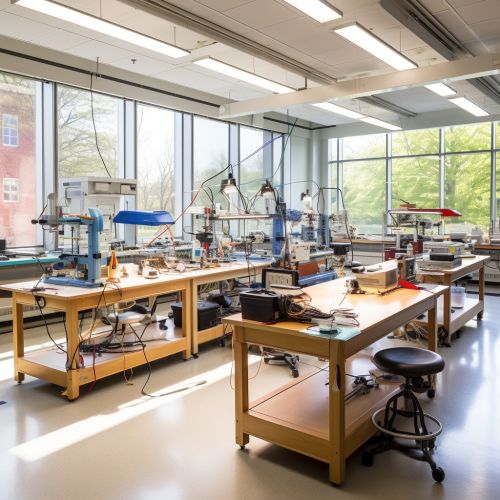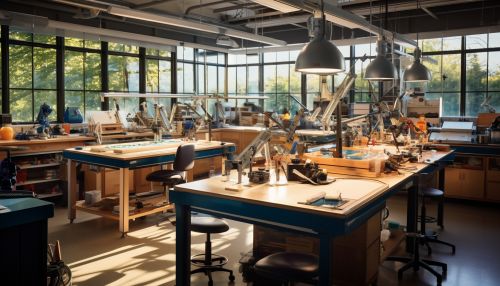Biomedical Engineering
Overview
Biomedical engineering, or medical engineering, is the application of engineering principles and design concepts to medicine and biology for healthcare purposes. This field seeks to close the gap between engineering and medicine, combining the design and problem-solving skills of engineering with medical biological sciences to advance health care treatment, including diagnosis, monitoring, and therapy. Biomedical engineering has only recently emerged as its own discipline, compared to many other engineering fields; such an evolution is common as a new field transitions from being an interdisciplinary specialization among already-established fields, to being considered a field in itself.
History
Biomedical engineering has a long history, dating back to ancient times. The earliest evidence of biomedical engineering can be traced back to the Egyptians who had a basic understanding of medicine and the human body. They were able to design prosthetics and surgical tools, demonstrating an early form of biomedical engineering. The field has evolved significantly over time, with advancements in technology and science contributing to its growth and development.
Disciplines
Biomedical engineering is a broad field with various disciplines. These include bioinformatics, biomechanics, biomaterials, biomedical optics, bionics, biophotonics, bioprocess engineering, biosensors, genetic engineering, medical imaging, neural engineering, pharmacology, tissue engineering, and rehabilitation engineering.


Applications
Biomedical engineering has a wide range of applications in various fields. In the medical field, biomedical engineering is used in the design of medical devices such as artificial hearts, pacemakers, MRI machines, and prosthetics. In the field of research, biomedical engineering plays a crucial role in the development of new technologies and techniques for diagnosing and treating diseases. In the field of education, biomedical engineering is taught as a discipline in universities and colleges, preparing students for careers in this field.
Future Developments
The future of biomedical engineering is promising, with numerous advancements expected in the coming years. With the advent of technologies such as 3D printing, artificial intelligence, and nanotechnology, biomedical engineering is poised to revolutionize healthcare and medicine. These technologies will enable the development of more advanced medical devices and treatments, improving the quality of healthcare and potentially saving lives.
